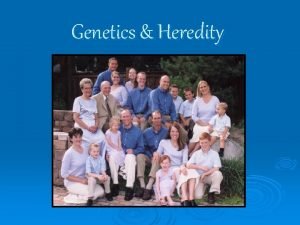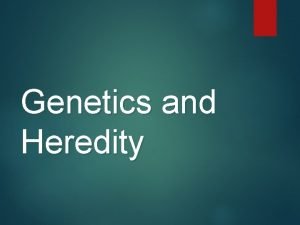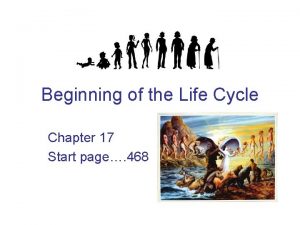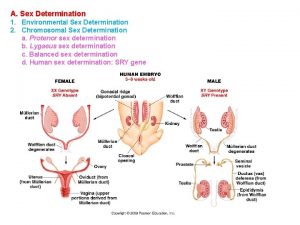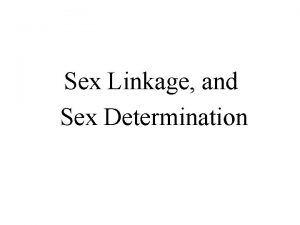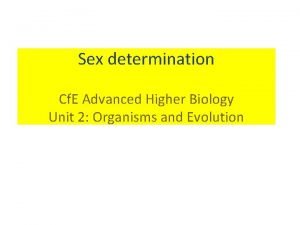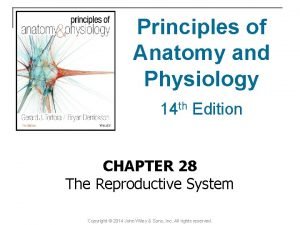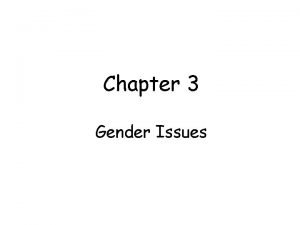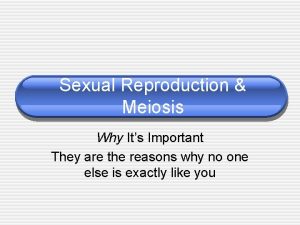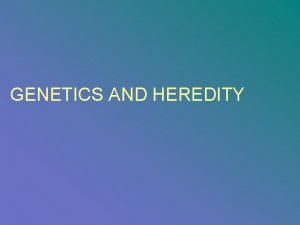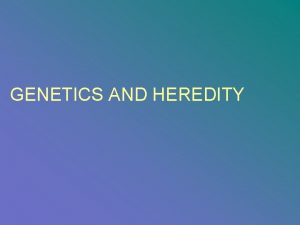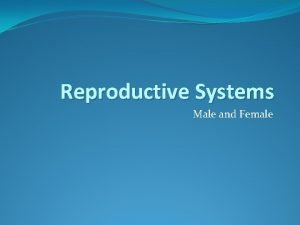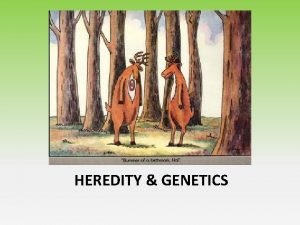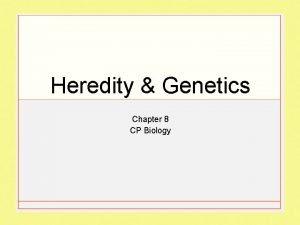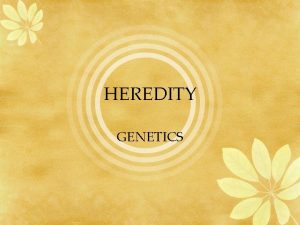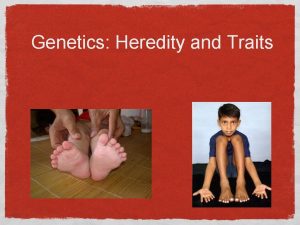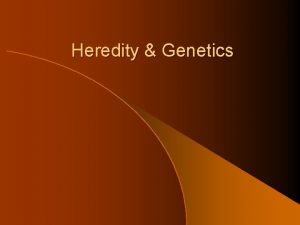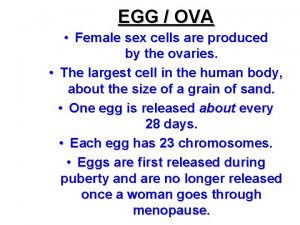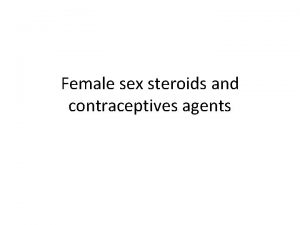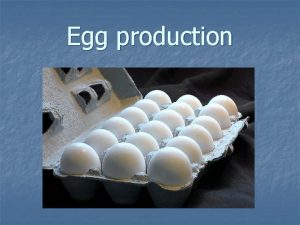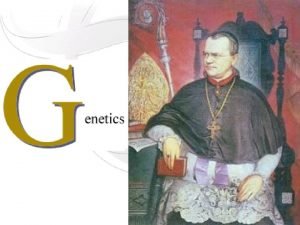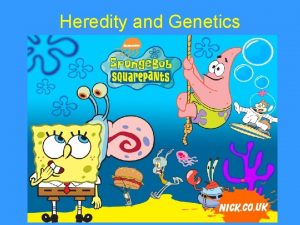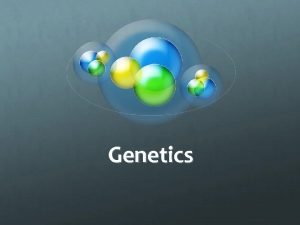Genetics Heredity Sex Cells Female Ovum or Egg

















- Slides: 17

Genetics & Heredity

Sex Cells Female Ovum or Egg Male Sperm

Chromosomes A. Chromosomes are rod shaped chemical compounds that carry genetic coding. B. The genetic coding transmits characteristics from the parent to the child.

Chromosomes C. Found in both sperm and ovum D. Every cell has 23 pairs of chromosomes, 46 total E. Sperm and ovum contain 23 chromosomes each.

Genes A. There are hundreds of genes on each chromosome. B. They carry individual, specific traits.

Genes C. They are the building blocks of chromosomes. D. They are bead-like structures.

Genes E. They can be dominant (stronger) genes which produce the characteristic in the individual Blue Eyes

Genes F. They can be recessive (weaker) genes which do not produce the characteristic unless transmitted by both parents. Red Hair

Genetic Information A. An XY combination will produce a male child. B. An XX combination will produce a female child.

Genetic Information C. The father determines the sex of the child.

Genetic Information Color Blindness D. Sex linked defects Female is carrier but defect appears in male. Can you trace a line from one x to the other x?

MULTIPLE BIRTHS

FRATERNAL TWINS Form when two eggs are released at the same time and each is fertilized. They grow side by side in the uterus. Because they are the result of two different ovum and sperm they are no more alike in terms of heredity than other siblings. They may be of opposite sexes.

IDENTICAL TWINS A fertilized egg starts growing by dividing into two cells. These cells continue to divide. Sometimes, the cell mass splits in half soon after fertilization. Each cell mass grows into a separate embryo. They are always the same sex, and have very similar characteristics because they began as one zygote.

TRIPLETS * Triplets can occur through several combinations. Three separate ovum could be released and fertilized. * Two ovum could be released, fertilized and then one ovum splits into separate embryo, resulting in a set of identical twins and one fraternal twin. * One ovum could split into two parts resulting in identical triplets

CONJOINED TWINS Conjoined twins result when a fertilized ovum begins to split into two parts, but does not fully complete the process. The babies are joined at whatever location does not complete the splitting process.

THE END!!
 Xxtesticles
Xxtesticles Sex sex sex
Sex sex sex Kurt bumby
Kurt bumby Sex sex sex
Sex sex sex Sex sex sex
Sex sex sex Ovum sex
Ovum sex Genetics is the study of heredity and variation.
Genetics is the study of heredity and variation. Chapter 17 lesson 2 heredity and genetics
Chapter 17 lesson 2 heredity and genetics Sex determination and sex linkage
Sex determination and sex linkage Once a sex offender always a sex offender
Once a sex offender always a sex offender Linkage
Linkage Heterogametic
Heterogametic Primary sex organs of the female *
Primary sex organs of the female * Theca interna
Theca interna Dot quizlet
Dot quizlet Female genitalia labeled
Female genitalia labeled Androgen insensitivity
Androgen insensitivity No one likes you
No one likes you





